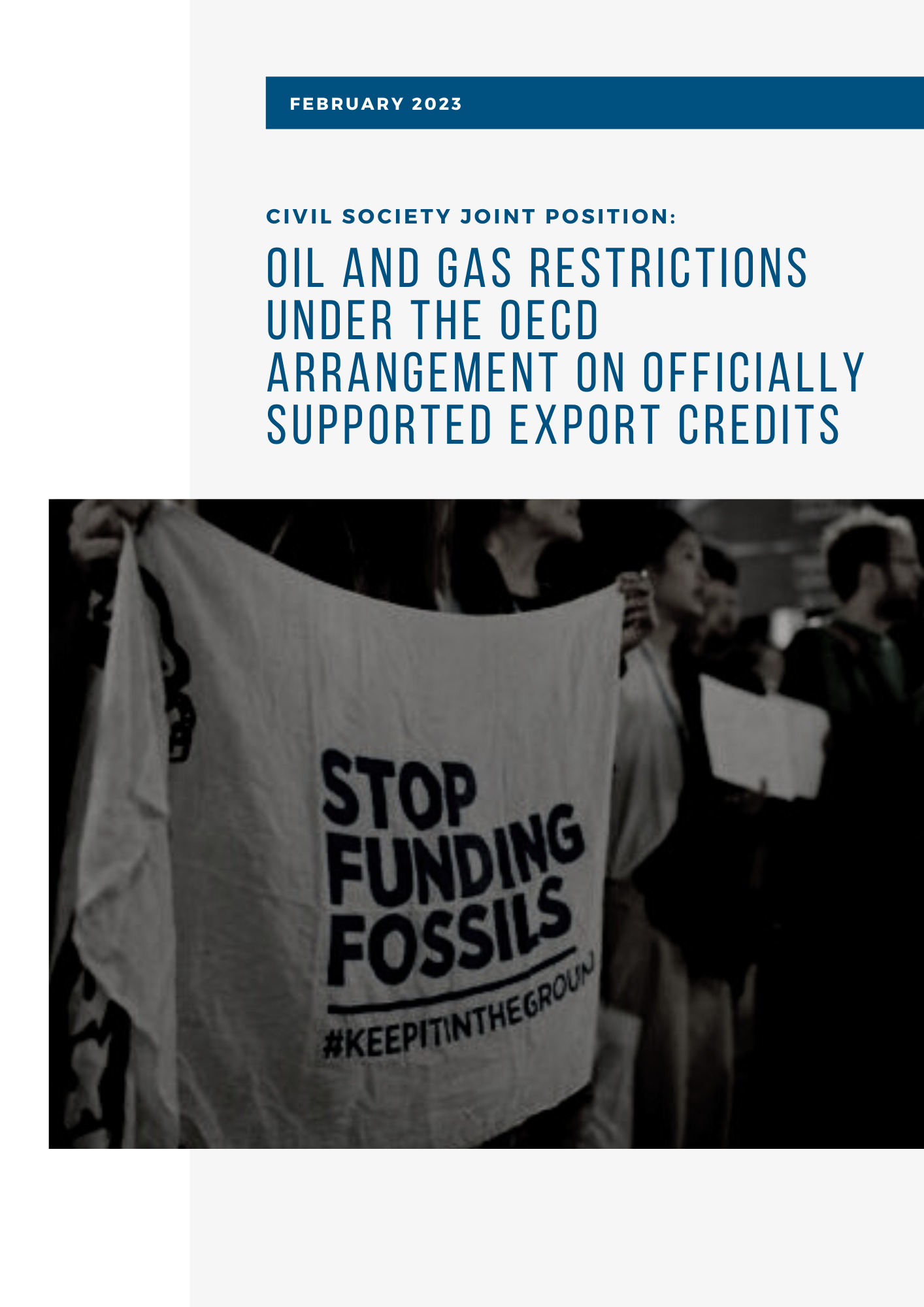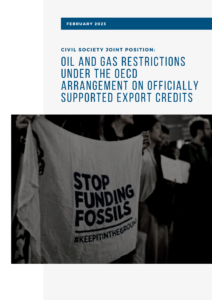This joint position launched by 175 civil society organisations from 45 countries calls on world leaders to end OECD export finance for oil and gas, and explains how it can be done.
The document outlines how the OECD Arrangement on Officially Supported Export Credits can align with the Paris Agreement warming target of 1.5°C by placing restrictions on export support for oil and gas projects and associated infrastructure. These restrictions build on the existing prohibition on coal-fired power, which came into effect 1 January 2022 and was preceded by the coal-fired power sector understanding (CFSU). Participant countries under the Arrangement are encouraged to utilize this document to develop comprehensive fossil fuel restrictions. This briefing has been written by a coalition of civil society organizations from both global south and global north countries working on climate governance of export-credit agencies (ECAs).
Climate science is crystal clear that to meet a 1.5°C warming limit by the end of the century, no new oil and gas fields can be exploited, and that 40% of already developed fields may need to be shut down early. Yet, G20 ECAs provide seven times more support for fossil fuels than clean energy. From 2019-2021,G20 ECAs supported at least $34 billion per year worth of transactions for fossil fuels, over 90% of which were for oil and gas, while providing only $4.7 billion for clean energy.
Export Credit Agencies (ECAs) play a catalytic role in shaping our global energy systems. ECAs help domestic companies limit the risk of selling goods and services in overseas markets, by providing loans, loan guarantees and insurance. This finance is government-backed, and often concessional, helping prop up fossil fuel projects and infrastructure which would otherwise be too risky for the private sector to finance alone.
The Civil Society Joint Position advocates that OECD negotiating countries do this by prohibiting all export support for new oil and gas infrastructure and associated infrastructure.


